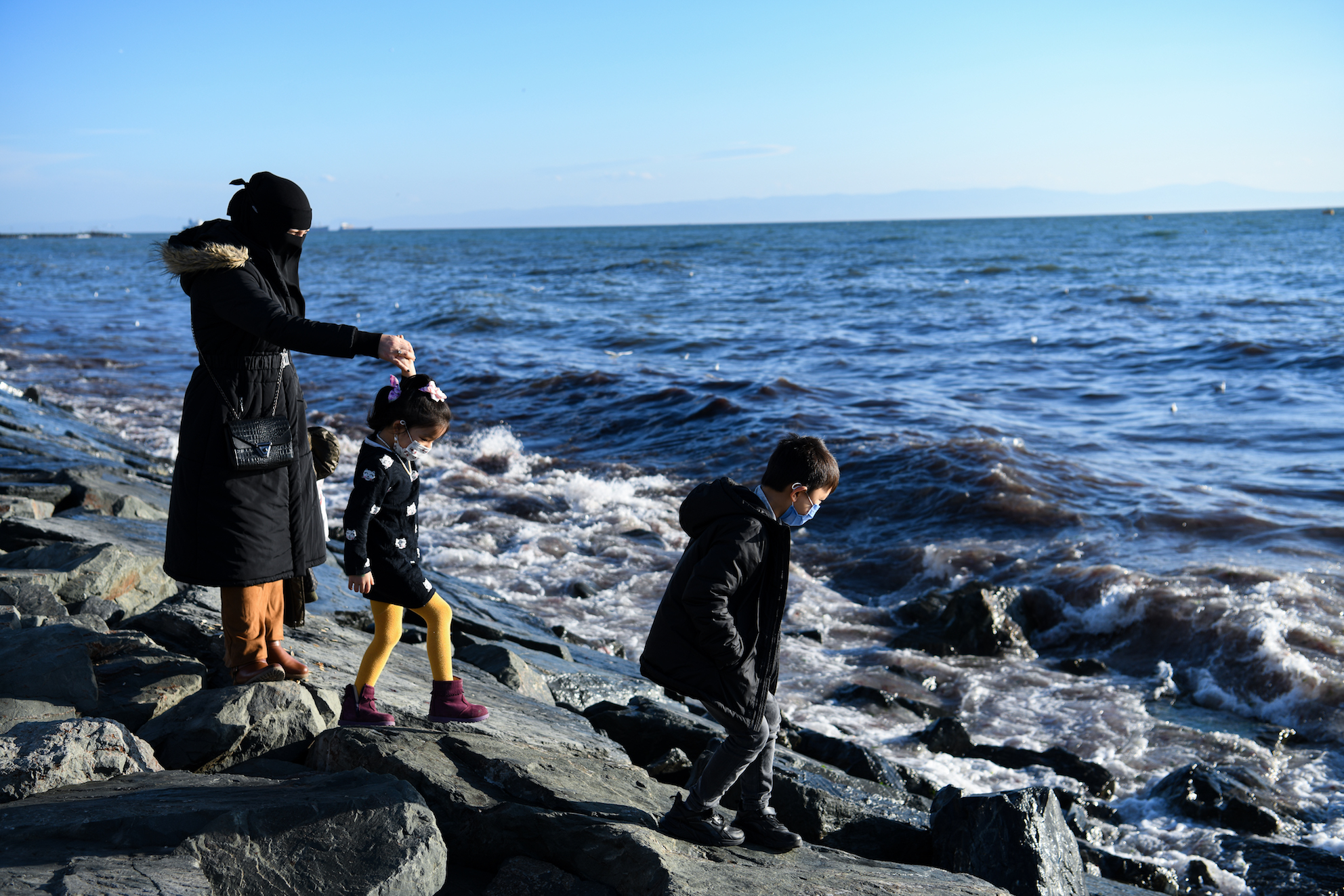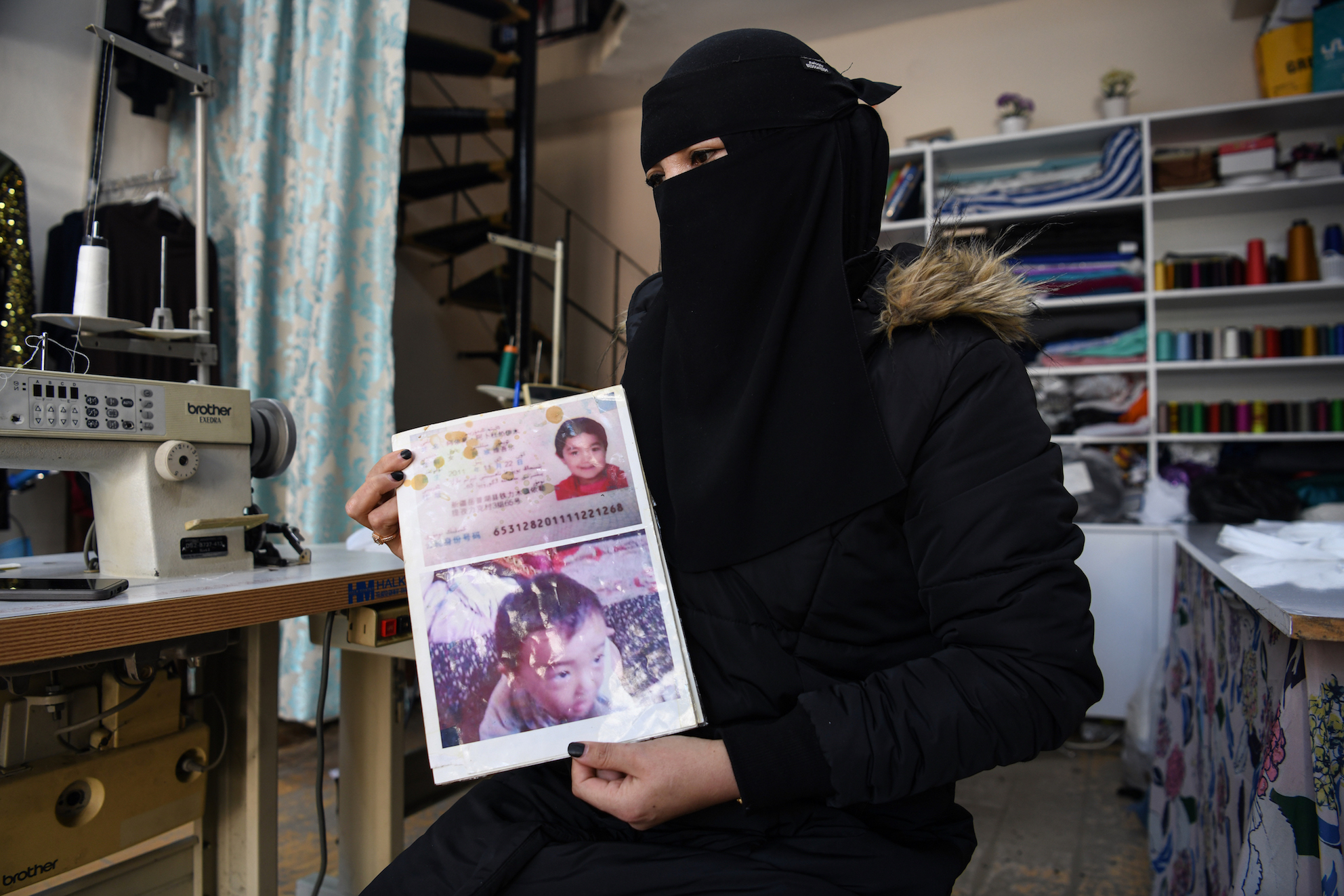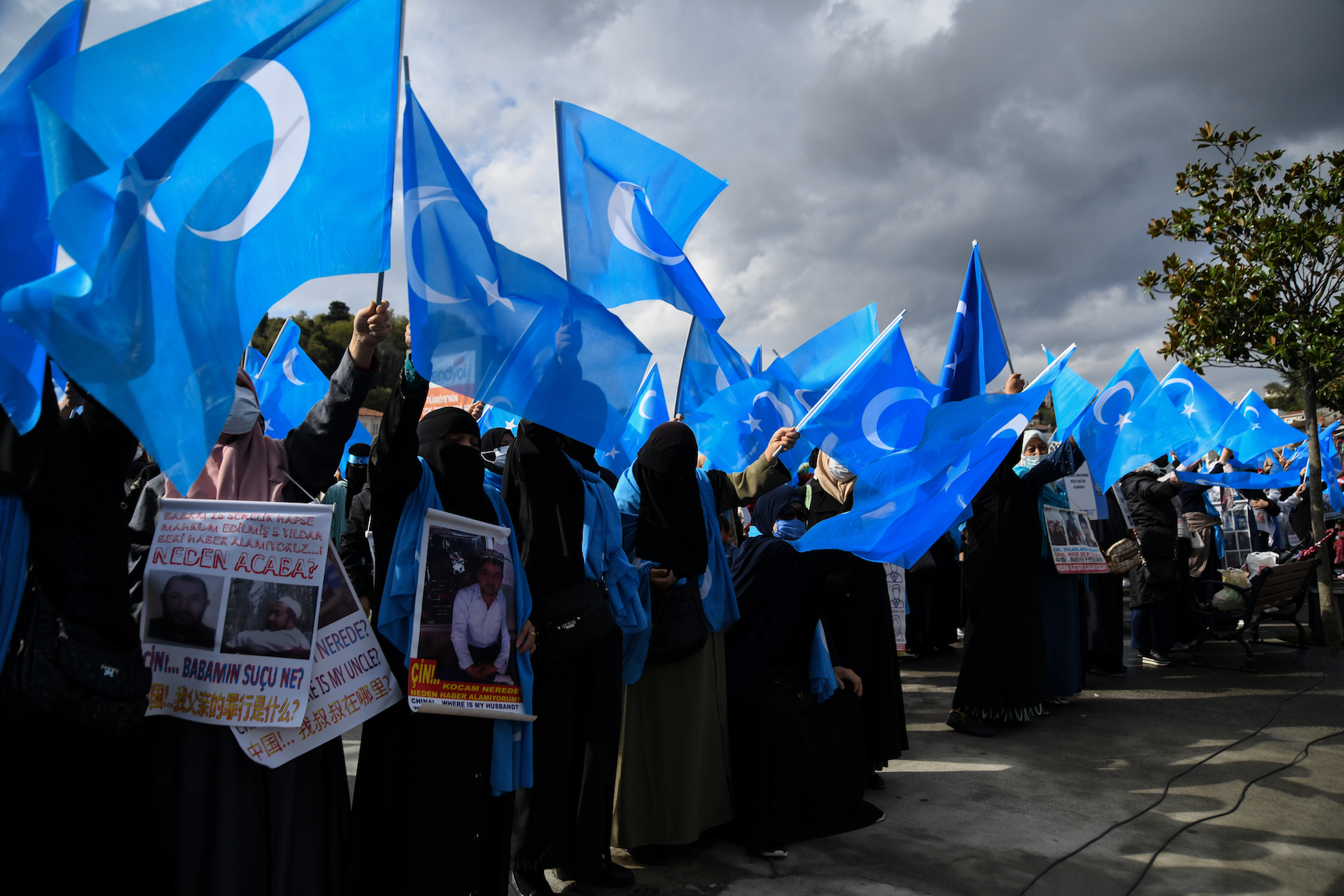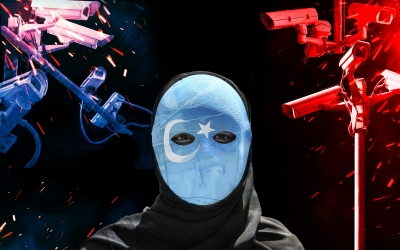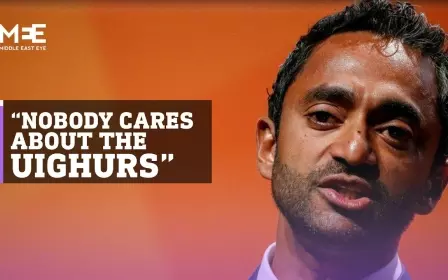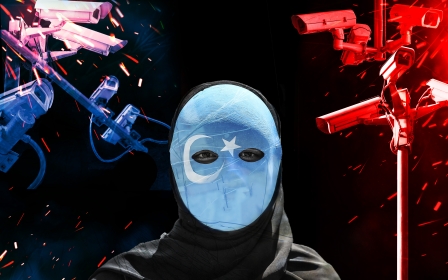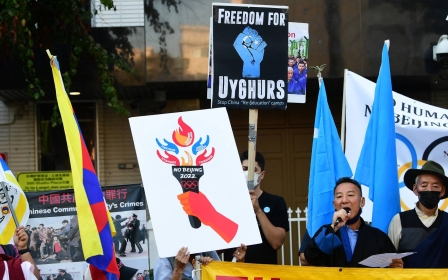Family separation blights Turkey’s Uighur community
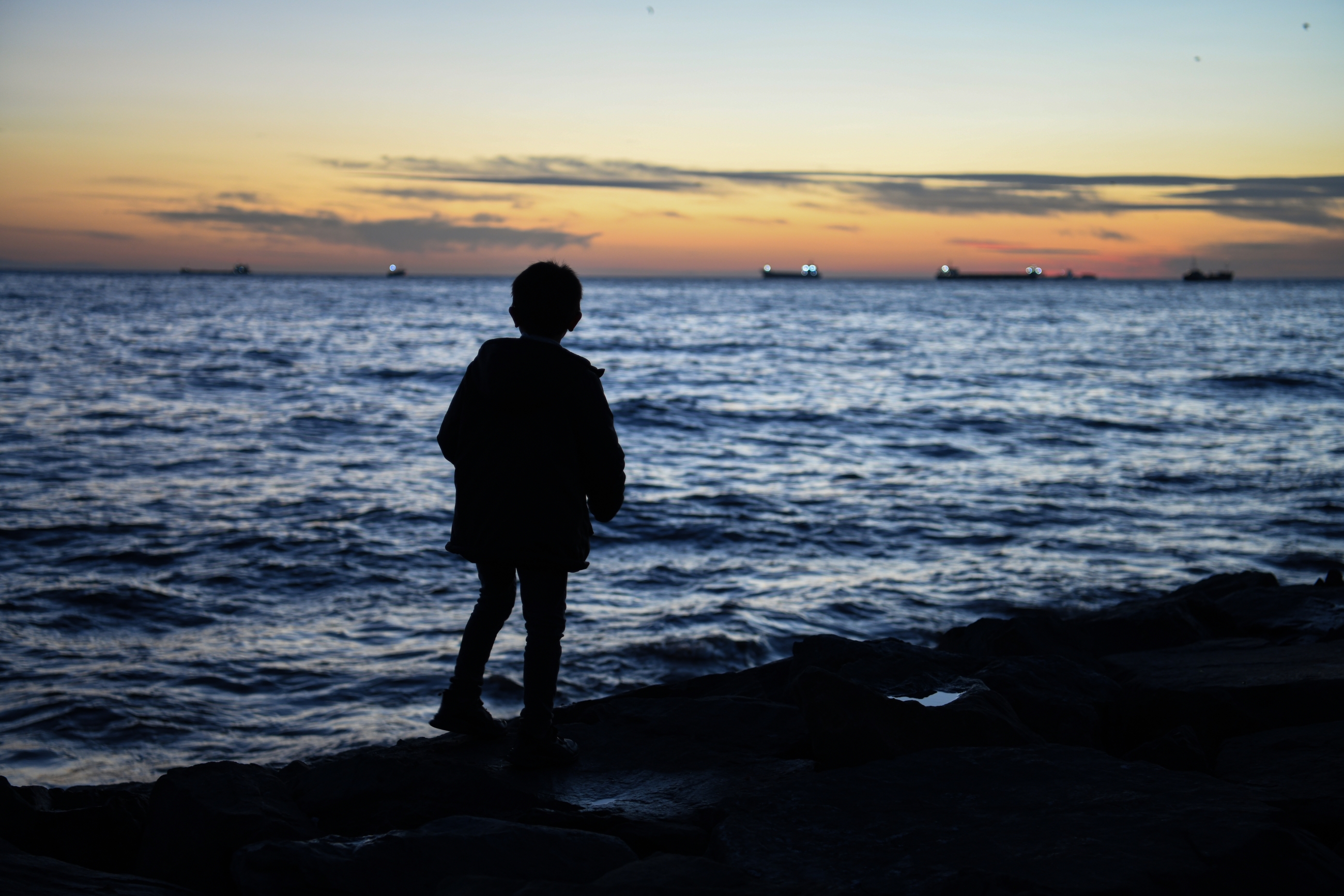
Kalbinur Tursun, an ethnic Uighur woman originally from Yopurgha, a village on the western fringes of the vast Taklamakan desert, distinctly remembers the last telephone conversations she had with her relatives back home in Xinjiang.
“Do not even think about coming back here,” her sister told her in July 2017. “The country is no longer as you remember it.”
'If there ever were a possibility to talk to my children again, I would tell them that I didn’t leave them deliberately'
- Kalbinur Tursun, Uighur mother
A year earlier, in April 2016, Tursun had boarded a plane to Istanbul with her husband Abdurehim Rozi and son Mohammed, wearing a tight corset to conceal her six-month pregnancy. She left her other five children at home.
China’s childbearing policies - as of May 2021 the people's republic allows couples to have three children, up from two - particularly enforced on Uighurs and other Muslim minorities in the far western region of Xinjiang, meant that raising her soon-to-be seven children in Urumqi was almost impossible.
Tursun, a tailor who has her own shop in Istanbul, told Middle East Eye the Chinese authorities would raid the family home in the region’s capital on a nightly basis to find out how many people were living there, leaving her with no option but to send some of her children to stay with relatives outside the city.
New MEE newsletter: Jerusalem Dispatch
Sign up to get the latest insights and analysis on Israel-Palestine, alongside Turkey Unpacked and other MEE newsletters
Fleeing Xinjiang
For a brief period in 2015, the Chinese government loosened its passport policy for Xinjiang residents, during which time Tursun, her husband and one of their sons were able to obtain Chinese passports.
Fearing she would be subjected to a forced abortion if the authorities discovered her pregnancy, Tursun fled Urumqi, entrusting her remaining children to the care of relatives until their passport applications were accepted.
Upon arrival in Istanbul, Rozi was informed that their other children had been issued passports. Ten days later, he returned to China to arrange their travel to Turkey.
During this time apart, Tursun would call her husband every morning and every evening, until 10 June 2016, the day she believes he was arrested by the Chinese authorities.
Forty days after giving birth alone in Istanbul, Tursun’s fears were confirmed by her husband’s friends, who informed her that Rozi had been sentenced to 15 years in prison for having travelled and sent money overseas.
As well as her husband, five of Tursun's children were still in China.
China's crackdown on Uighurs
The extrajudicial detainment of Uighurs, Kazakhs and other ethnic minorities in Xinjiang is part of an intensifying crackdown launched by Beijing on the pretext of countering “terrorism, separatism and infiltration” in the region.
Since 2017, at least one million men and women have been imprisoned or held in mass internment camps, portrayed by the Chinese government as “vocational education centres”, according to reports by Amnesty International.
Over the past four years, a growing number of reports detailing mass surveillance, forced cultural assimilation, involuntary sterilisation and organ harvesting have emerged from the cracks in China’s information walls, drawing accusations of systematic human rights violations and genocide.
Mobile apps provide answers
Tursun believed her children were still with relatives in Xinjiang. Then one day in December 2018, she was scrolling through a WhatsApp group for Uighur exiles when she recognised her daughter Ayse in a video depicting Uighur children speaking Mandarin, in what appears to be a Chinese state-run orphanage.
Initially pleased to see at least one of her children alive, Tursun’s relief turned to dread upon finding out from the man who shared the video that it was filmed in Hotan - a part of Xinjiang in which she has no relatives or acquaintances - over 300 miles from her native Kashgar.
Since then, the trail has gone cold. While trying to rebuild a life for the two children she has with her in Turkey, Tursun has ceaselessly campaigned for her family to be reunited.
Every Friday, the local Uighur community organises a shared bus journey across the city, for people with missing family members to protest in front of the Chinese consulate.
“We have cried and pleaded outside the consulate for information about our families, even in the snow, but they never let us in, they never respond to our calls,” Tursun explains at her tailor shop in Istanbul. “China is not a nation that listens.”
The shop sells mostly Islamic dresses, which she would be forbidden from wearing in Xinjiang. Tucked away from sight lie a collection of her husband's clothes, kept so Tursun has something to remember him by close at hand.
Having written letters to 16 western governments, all of which went unanswered, Tursun - alongside six other Uighur mothers in similar circumstances - braved a journey to Ankara on foot for International Women’s Day last year.
“If there ever were a possibility to talk to my children again,” she says, “I would tell them that I didn’t leave them deliberately, I was obliged to do so. My biggest fear is that they will hate me, thinking that I abandoned them.”
‘Fake news’
For many Uighurs living in exile, social media has provided only fragments of information as to the fate of their missing relatives in China.
This was the case for Semsinur Abdugafur, a specialist in Uighur herbal medicine and former gynaecologist, who has not been able to contact her husband, daughter and extended family in Xinjiang since 2016.
In June last year, an independent tribunal was held in London to assess evidence relating to Beijing’s treatment of Uighurs and other Turkic Muslim minorities and to determine whether these actions constitute a genocide.
Abdugafur gave a witness testimony at the tribunal, claiming that she had worked as part of medical teams involved in detecting unauthorised pregnancies, performing forced abortions and sterilising Uighur women during the 90s.
Four months later, on 14 October, a video entitled "Fake News" surfaced on an unknown YouTube account. In the video, Abdugafur’s sister and daughter address her from an ornate living room, denouncing her testimony as a “fabrication of rumours about forced abortion and removal of the uterus in Xinjiang”.
Abdugafur is adamant that her relatives are being compelled by the Chinese authorities to speak out against her and refute her allegations.
“Looking at our house, it was not so beautiful before,” her sister says in the video. “Now it is decorated with some new furniture, we have no difficulties. We live in Xinjiang very happily, but you use this kind of lie to slander our country.”
At her shop selling traditional Uighur medicine in Istanbul, Abdugafur describes the struggle of being apart from her family for several years.
“I come to work and just clean and sit down. When a patient comes, I serve them, but otherwise I have no desire to do anything else. I don’t have my mother, I don’t have my siblings, I don’t have my daughter. I only go to the Chinese consulate, I scream and shout there to ease my stress.”
Beijing’s response
Chinese officials have fervently denied the legitimacy of the UK-based Uighur Tribunal, issuing sanctions against its organisers and claiming that it serves as a “political tool used by anti-China and separatist elements to deceive and mislead the public”.
The Chinese embassy in London dismissed what it called a "pseudo tribunal" and a Chinese foreign policy spokesperson said the United States was using Xinjiang-related issues to “spread rumours under the guise of human rights and engage in political manipulation and economic bullying”.
Nevertheless, a verdict delivered on 9 December concluded that the Chinese government’s actions in Xinjiang do amount to genocide and crimes against humanity.
Although unofficial and not legally binding, its participants hoped that evidence presented at the tribunal might spur action from the international community.
Winter Olympics boycott
Human rights activists and advocacy groups have also petitioned the International Olympic Committee (ICC) to disqualify China from hosting the Beijing 2022 Winter Olympics, citing the persecution of Uighur Muslims among other human rights concerns.
The petition, which has been signed just over 100,000 times, has had little impact.
On 6 December last year, however, the US announced a diplomatic boycott of the games, with other western nations, including Australia, Canada and the UK following suit.
Despite welcoming the boycotts, Nureddin Izbasar, general secretary of the East Turkestan Human Rights Watch Association, says that such measures taken by only a few countries are insufficient.
“Apart from denouncements, restrictions placed on some Chinese officials and tax increases on Chinese goods, until now, we cannot say that any country has taken sufficient measures to deter China’s actions,” Izbasar said.
“In countries with democratically elected governments, the most concrete action would be for China to be held to account in international courts of law. This is what we are waiting for.”
The two children Kalbinur Tursun has with her in Turkey are now five and eight years old. Sitting in her tailor shop, she searches through TikTok and WhatsApp groups on her phone, trying to find traces of the children she has been separated from.
Middle East Eye delivers independent and unrivalled coverage and analysis of the Middle East, North Africa and beyond. To learn more about republishing this content and the associated fees, please fill out this form. More about MEE can be found here.


